A Car Diagnostic Scanner Course is essential for anyone looking to excel in automotive repair and maintenance. At CAR-TOOL.EDU.VN, we offer comprehensive programs that equip you with the skills to diagnose and fix car issues efficiently. By mastering diagnostic tools and techniques, you can enhance your career prospects, improve customer satisfaction, and boost your earning potential in the automotive industry.
Contents
- 1. Understanding the Need for Car Diagnostic Scanner Courses
- 1.1. The Evolution of Automotive Diagnostics
- 1.2. The Increasing Complexity of Modern Vehicles
- 1.3. Benefits of Formal Training in Car Diagnostics
- 2. Core Components of a Car Diagnostic Scanner Course
- 2.1. Introduction to Automotive Systems
- 2.2. Understanding OBD-II and Diagnostic Trouble Codes (DTCs)
- 2.3. Hands-On Training with Diagnostic Scanners
- 2.4. Advanced Diagnostic Techniques
- 3. Types of Car Diagnostic Scanners Covered in Courses
- 3.1. Basic OBD-II Code Readers
- 3.2. Advanced Scan Tools
- 3.3. OEM Diagnostic Software
- 3.4. Specialized Diagnostic Equipment
- 4. Key Skills Developed in a Car Diagnostic Scanner Course
- 4.1. Interpreting Diagnostic Trouble Codes (DTCs)
- 4.2. Performing Live Data Analysis
- 4.3. Conducting Component Testing
- 4.4. Using Wiring Diagrams and Service Manuals
- 5. Benefits of a Car Diagnostic Scanner Course for Automotive Professionals
- 5.1. Enhanced Diagnostic Accuracy
- 5.2. Increased Efficiency and Productivity
- 5.3. Higher Earning Potential
- 5.4. Improved Customer Satisfaction
- 6. Choosing the Right Car Diagnostic Scanner Course
- 6.1. Course Curriculum and Content
- 6.2. Instructor Qualifications and Experience
- 6.3. Availability of Hands-On Training
- 6.4. Cost and Financing Options
- 7. Online Car Diagnostic Scanner Courses: A Convenient Option
- 7.1. Benefits of Online Learning
- 7.2. Considerations for Choosing an Online Course
- 7.3. Top Online Course Providers
- 8. Career Paths After Completing a Car Diagnostic Scanner Course
- 8.1. Automotive Technician
- 8.2. Diagnostic Specialist
- 8.3. Service Advisor
- 8.4. Shop Foreman/Manager
- 9. Staying Up-to-Date with the Latest Diagnostic Technologies
- 9.1. Attending Industry Conferences and Workshops
- 9.2. Subscribing to Trade Publications and Online Resources
- 9.3. Participating in Online Forums and Communities
- 9.4. Pursuing Advanced Certifications
- 10. Real-World Examples of How Diagnostic Skills Improve Car Repair
- 10.1. Case Study 1: Diagnosing an Intermittent Misfire
- 10.2. Case Study 2: Resolving a Transmission Shifting Problem
- 10.3. Case Study 3: Identifying an ABS Fault
- 10.4. Case Study 4: Correctly Diagnosing EVAP System Leaks
- Conclusion
- FAQ: Car Diagnostic Scanner Course
- What is a car diagnostic scanner course?
- Why should I take a car diagnostic scanner course?
- What skills will I learn in a car diagnostic scanner course?
- What types of car diagnostic scanners are covered in these courses?
- Is it better to take an online or in-person car diagnostic scanner course?
- How long does a car diagnostic scanner course typically take to complete?
- What are the prerequisites for taking a car diagnostic scanner course?
- What career paths can I pursue after completing a car diagnostic scanner course?
- How can I stay up-to-date with the latest diagnostic technologies?
- Where can I find a reputable car diagnostic scanner course?
1. Understanding the Need for Car Diagnostic Scanner Courses
Why is a car diagnostic scanner course so critical in today’s automotive landscape? As vehicles become increasingly complex with advanced electronic systems, the ability to accurately diagnose issues using diagnostic scanners is no longer optional—it’s a necessity.
1.1. The Evolution of Automotive Diagnostics
In the past, mechanics relied heavily on manual inspection and basic tools to identify problems. Today, modern vehicles incorporate sophisticated computer systems that control almost every aspect of their operation. According to a report by the National Institute for Automotive Service Excellence (ASE), vehicles now contain an average of 50 to 100 microprocessors. These systems require specialized diagnostic tools and expertise to interpret the data they provide.
1.2. The Increasing Complexity of Modern Vehicles
Modern vehicles are equipped with numerous sensors, control modules, and interconnected systems. Diagnosing issues without the aid of diagnostic scanners can be time-consuming and often inaccurate. A car diagnostic scanner course provides the necessary skills to navigate this complexity. For instance, Bosch Automotive Service Solutions reports that accurate diagnostics can reduce repair time by up to 40%.
1.3. Benefits of Formal Training in Car Diagnostics
Formal training offers a structured approach to learning automotive diagnostics. A car diagnostic scanner course ensures that technicians are well-versed in the latest diagnostic techniques and technologies. Studies by the U.S. Bureau of Labor Statistics indicate that certified automotive technicians earn an average of 20% more than non-certified technicians. This is largely due to their ability to efficiently diagnose and repair vehicles, leading to higher customer satisfaction and increased business for their employers.
2. Core Components of a Car Diagnostic Scanner Course
What should you expect to learn in a comprehensive car diagnostic scanner course? These courses typically cover a range of topics, from the fundamentals of automotive systems to advanced diagnostic procedures.
2.1. Introduction to Automotive Systems
A foundational understanding of automotive systems is crucial. This includes learning about the engine, transmission, braking system, electrical system, and other key components. According to Automotive Training Center, a strong grasp of these systems allows technicians to effectively interpret diagnostic data and identify the root causes of problems.
2.2. Understanding OBD-II and Diagnostic Trouble Codes (DTCs)
OBD-II (On-Board Diagnostics II) is a standardized system used in most vehicles to monitor performance and identify issues. Learning how to interpret Diagnostic Trouble Codes (DTCs) is a core skill taught in car diagnostic scanner courses. The Society of Automotive Engineers (SAE) provides detailed documentation on OBD-II standards, which is essential knowledge for any diagnostic technician.
2.3. Hands-On Training with Diagnostic Scanners
Practical experience with diagnostic scanners is invaluable. A good car diagnostic scanner course will provide hands-on training with various types of scanners, including basic code readers, advanced scan tools, and OEM (Original Equipment Manufacturer) diagnostic software. According to a study by the University of Northwestern’s Transportation Center, hands-on training significantly improves diagnostic accuracy and efficiency.
2.4. Advanced Diagnostic Techniques
Beyond reading codes, advanced diagnostic techniques involve using scan tools to perform live data analysis, component testing, and system programming. CAR-TOOL.EDU.VN’s courses include training on these advanced techniques, enabling technicians to tackle complex diagnostic challenges. For example, using an oscilloscope to analyze sensor signals or performing relative compression tests to evaluate engine health.
3. Types of Car Diagnostic Scanners Covered in Courses
What types of car diagnostic scanners will you encounter in a training course? The market offers a wide array of tools, each with its own capabilities and applications.
3.1. Basic OBD-II Code Readers
Basic code readers are entry-level tools that can read and clear DTCs. These are suitable for simple diagnostics and quick checks. Autozone, a leading auto parts retailer, notes that basic code readers are a cost-effective solution for DIY enthusiasts and small repair shops.
3.2. Advanced Scan Tools
Advanced scan tools offer more comprehensive diagnostic capabilities. These tools can perform live data streaming, bi-directional control, and system resets. According to a report by Research and Markets, the market for advanced scan tools is growing due to the increasing complexity of vehicle systems.
3.3. OEM Diagnostic Software
OEM diagnostic software provides the most in-depth diagnostic capabilities, as it is designed by the vehicle manufacturers themselves. These tools offer access to proprietary diagnostic procedures and programming functions. A study by the Automotive Management Institute (AMI) highlights that using OEM diagnostic software can improve diagnostic accuracy and reduce the risk of misdiagnosis.
3.4. Specialized Diagnostic Equipment
Certain diagnostic tasks require specialized equipment, such as oscilloscopes, multimeters, and gas analyzers. A car diagnostic scanner course will often include training on the use of these tools to supplement scan tool diagnostics. According to Fluke Corporation, a leading manufacturer of test and measurement equipment, incorporating specialized tools into the diagnostic process can significantly improve accuracy and efficiency.
4. Key Skills Developed in a Car Diagnostic Scanner Course
What specific skills will you develop by taking a car diagnostic scanner course? These courses are designed to provide you with a comprehensive skill set that is highly valued in the automotive industry.
4.1. Interpreting Diagnostic Trouble Codes (DTCs)
Understanding what DTCs mean and how to use them to guide your diagnostic process is fundamental. A car diagnostic scanner course teaches you how to access DTC databases and interpret the codes correctly. According to ALLDATA, a leading provider of automotive repair information, proper DTC interpretation is crucial for accurate diagnosis and repair.
4.2. Performing Live Data Analysis
Live data analysis involves monitoring sensor readings and other parameters in real-time to identify anomalies. This skill is essential for diagnosing intermittent problems and performance issues. A report by the Equipment and Tool Institute (ETI) emphasizes that live data analysis is a critical component of modern automotive diagnostics.
4.3. Conducting Component Testing
Component testing involves using scan tools and specialized equipment to test the functionality of individual components, such as sensors, actuators, and control modules. This skill helps you pinpoint faulty components and avoid unnecessary replacements. According to Standard Motor Products, a leading manufacturer of automotive parts, proper component testing can save time and money in the diagnostic process.
4.4. Using Wiring Diagrams and Service Manuals
Navigating wiring diagrams and service manuals is essential for understanding how vehicle systems are interconnected and for performing accurate diagnostics. A car diagnostic scanner course will teach you how to access and interpret these resources effectively. Mitchell 1, a leading provider of automotive repair information, notes that using wiring diagrams and service manuals is crucial for diagnosing complex electrical issues.
5. Benefits of a Car Diagnostic Scanner Course for Automotive Professionals
How can a car diagnostic scanner course benefit automotive professionals? The advantages are numerous, ranging from increased earning potential to improved job satisfaction.
5.1. Enhanced Diagnostic Accuracy
One of the primary benefits of a car diagnostic scanner course is improved diagnostic accuracy. By mastering diagnostic techniques and tools, technicians can identify problems more quickly and accurately. According to a study by the University of California, Berkeley, accurate diagnostics can reduce the number of unnecessary repairs and improve customer satisfaction.
5.2. Increased Efficiency and Productivity
Efficient diagnostics translate to increased productivity. Technicians who are proficient in using diagnostic scanners can complete more repairs in less time, leading to higher revenue for their employers. A report by the Automotive Aftermarket Industry Association (AAIA) indicates that efficient diagnostics is a key driver of profitability in the automotive service industry.
5.3. Higher Earning Potential
As mentioned earlier, certified automotive technicians earn more than non-certified technicians. A car diagnostic scanner course can help you achieve certification and increase your earning potential. According to Payscale, certified automotive technicians can earn up to 30% more than their non-certified counterparts.
5.4. Improved Customer Satisfaction
Accurate and efficient diagnostics lead to improved customer satisfaction. Customers appreciate technicians who can quickly and effectively resolve their vehicle issues. J.D. Power and Associates reports that customer satisfaction is a key factor in customer retention and repeat business.
6. Choosing the Right Car Diagnostic Scanner Course
How do you select the right car diagnostic scanner course for your needs? With so many options available, it’s important to consider several factors.
6.1. Course Curriculum and Content
Ensure that the course curriculum covers the topics that are most relevant to your career goals. Look for courses that include hands-on training, real-world case studies, and up-to-date information on the latest diagnostic technologies. According to the National Automotive Technicians Education Foundation (NATEF), a comprehensive curriculum is essential for effective training.
6.2. Instructor Qualifications and Experience
The qualifications and experience of the instructors are critical. Look for courses taught by certified technicians with extensive experience in automotive diagnostics. The AMI emphasizes that experienced instructors can provide valuable insights and guidance.
6.3. Availability of Hands-On Training
Hands-on training is essential for developing practical skills. Choose a course that provides ample opportunities to work with diagnostic scanners and perform real-world diagnostic procedures. A study by the Center for Automotive Research (CAR) highlights that hands-on training is more effective than theoretical instruction alone.
6.4. Cost and Financing Options
Consider the cost of the course and whether financing options are available. Some courses may offer payment plans or scholarships to help make the training more accessible. The U.S. Department of Education provides information on federal student aid programs that can help finance vocational training.
7. Online Car Diagnostic Scanner Courses: A Convenient Option
Are online car diagnostic scanner courses a viable alternative to traditional classroom training? Online courses offer flexibility and convenience, but it’s important to choose a reputable provider.
7.1. Benefits of Online Learning
Online learning allows you to study at your own pace and on your own schedule. This can be particularly beneficial for working professionals who need to balance their studies with their job responsibilities. According to a report by the Sloan Consortium, online learning can be as effective as traditional classroom instruction, provided that the course is well-designed and delivered.
7.2. Considerations for Choosing an Online Course
When choosing an online car diagnostic scanner course, consider the following factors:
- Accreditation: Ensure that the course is accredited by a reputable organization.
- Interactive Content: Look for courses that include interactive content, such as videos, simulations, and quizzes.
- Instructor Support: Check whether the course provides access to instructors for questions and support.
- Hands-On Practice: If possible, choose a course that includes a hands-on component, such as a virtual lab or a kit of diagnostic tools.
7.3. Top Online Course Providers
Several reputable providers offer online car diagnostic scanner courses. These include:
- CAR-TOOL.EDU.VN: Offers comprehensive online courses with hands-on simulations.
- Udemy: Provides a variety of automotive diagnostic courses taught by industry experts.
- Coursera: Partners with universities to offer online courses in automotive technology.
8. Career Paths After Completing a Car Diagnostic Scanner Course
What career opportunities will be available to you after completing a car diagnostic scanner course? The skills you gain can open doors to a variety of rewarding careers.
8.1. Automotive Technician
The most common career path for graduates of car diagnostic scanner courses is that of an automotive technician. Automotive technicians diagnose, repair, and maintain vehicles. According to the U.S. Bureau of Labor Statistics, the median annual wage for automotive service technicians and mechanics was $46,880 in May 2023.
8.2. Diagnostic Specialist
Diagnostic specialists are highly skilled technicians who specialize in diagnosing complex vehicle issues. They often work in dealerships or independent repair shops that handle a high volume of diagnostic work. According to ZipRecruiter, the average annual salary for diagnostic specialists in the United States is $62,450.
8.3. Service Advisor
Service advisors act as liaisons between customers and technicians. They explain diagnostic findings to customers and recommend appropriate repairs. According to NADA, effective communication skills and a strong understanding of automotive diagnostics are essential for service advisors.
8.4. Shop Foreman/Manager
With experience and leadership skills, graduates of car diagnostic scanner courses can advance to positions such as shop foreman or manager. These roles involve overseeing the operations of a repair shop and managing a team of technicians. According to the Automotive Management Institute (AMI), strong diagnostic skills are a valuable asset for shop foremen and managers.
9. Staying Up-to-Date with the Latest Diagnostic Technologies
How can you stay current with the rapidly evolving field of automotive diagnostics? Continuous learning is essential for maintaining your skills and expertise.
9.1. Attending Industry Conferences and Workshops
Industry conferences and workshops provide opportunities to learn about the latest diagnostic technologies and network with other professionals. The SEMA Show and AAPEX Show are two of the largest automotive industry events in the world.
9.2. Subscribing to Trade Publications and Online Resources
Trade publications and online resources offer valuable insights into the latest diagnostic techniques and tools. Some popular resources include:
- Automotive Engineering International: A publication of SAE International.
- Motor Age: A trade publication for automotive service professionals.
- Diagnostic News: An online resource for automotive diagnostic information.
9.3. Participating in Online Forums and Communities
Online forums and communities provide opportunities to exchange information and learn from other technicians. Some popular online forums include:
- iATN (International Automotive Technicians Network): A professional community for automotive technicians.
- Garage Journal: An online forum for automotive enthusiasts and professionals.
- Reddit’s r/MechanicAdvice: A subreddit where mechanics and car owners can ask questions and share advice.
9.4. Pursuing Advanced Certifications
Pursuing advanced certifications can demonstrate your expertise and commitment to continuous learning. ASE offers a variety of advanced certifications in areas such as advanced engine performance and electronic diesel engine diagnostics.
10. Real-World Examples of How Diagnostic Skills Improve Car Repair
How do diagnostic skills learned in a car diagnostic scanner course translate to real-world improvements in car repair? Here are a few examples.
10.1. Case Study 1: Diagnosing an Intermittent Misfire
A customer complains of an intermittent misfire in their vehicle. Without diagnostic skills, a technician might simply replace the spark plugs or ignition coils, hoping to solve the problem. However, a technician trained in using diagnostic scanners can perform live data analysis and identify the specific cylinder that is misfiring. They can then use an oscilloscope to analyze the ignition waveform and identify the root cause of the misfire, such as a faulty fuel injector or a wiring issue.
10.2. Case Study 2: Resolving a Transmission Shifting Problem
A customer reports that their vehicle is experiencing harsh shifting and slipping. A technician without diagnostic skills might recommend replacing the entire transmission, which is a costly and time-consuming repair. However, a technician trained in using diagnostic scanners can use the scan tool to monitor transmission sensor data and identify the specific issue, such as a faulty solenoid or a low fluid level. They can then perform targeted repairs, saving the customer time and money.
10.3. Case Study 3: Identifying an ABS Fault
A customer notices that their ABS warning light is illuminated. A technician without diagnostic skills might simply replace the ABS control module, which is an expensive component. However, a technician trained in using diagnostic scanners can use the scan tool to read ABS fault codes and perform component testing to identify the specific issue, such as a faulty wheel speed sensor or a hydraulic issue. They can then perform targeted repairs, ensuring that the ABS system is functioning properly.
10.4. Case Study 4: Correctly Diagnosing EVAP System Leaks
The EVAP system can trigger a check engine light, and is designed to capture fuel vapors to prevent them from being released into the atmosphere. Pinpointing the leak can be time-consuming, but a diagnostic scanner can show if the leak is large or small, and perform tests to isolate sections of the system for faster repair times.
Conclusion
A car diagnostic scanner course is an invaluable investment for anyone seeking to advance their career in the automotive industry. By mastering diagnostic techniques and tools, you can enhance your skills, increase your earning potential, and improve customer satisfaction. Whether you’re a seasoned technician or just starting out, CAR-TOOL.EDU.VN offers comprehensive training programs to help you succeed.
Ready to elevate your automotive diagnostic skills? Contact CAR-TOOL.EDU.VN today for expert guidance on selecting the perfect tools and parts for your needs. Our team is dedicated to providing you with the highest quality automotive repair information and solutions. Reach out to us at 456 Elm Street, Dallas, TX 75201, United States. Whatsapp: +1 (641) 206-8880. Visit our website CAR-TOOL.EDU.VN for more information. Start your journey to becoming a diagnostic expert now!
FAQ: Car Diagnostic Scanner Course
What is a car diagnostic scanner course?
A car diagnostic scanner course is a training program designed to teach individuals how to use diagnostic tools to identify and troubleshoot automotive issues. It covers the fundamentals of automotive systems, diagnostic techniques, and the use of various types of diagnostic scanners.
Why should I take a car diagnostic scanner course?
Taking a car diagnostic scanner course can enhance your diagnostic accuracy, increase your efficiency and productivity, improve your earning potential, and boost customer satisfaction. It’s essential for anyone looking to excel in the automotive repair and maintenance industry.
What skills will I learn in a car diagnostic scanner course?
In a car diagnostic scanner course, you will learn how to interpret Diagnostic Trouble Codes (DTCs), perform live data analysis, conduct component testing, and use wiring diagrams and service manuals.
What types of car diagnostic scanners are covered in these courses?
Car diagnostic scanner courses typically cover basic OBD-II code readers, advanced scan tools, OEM diagnostic software, and specialized diagnostic equipment such as oscilloscopes and multimeters.
Is it better to take an online or in-person car diagnostic scanner course?
Both online and in-person car diagnostic scanner courses have their advantages. Online courses offer flexibility and convenience, while in-person courses provide hands-on training and direct interaction with instructors. The best option depends on your learning style and schedule.
How long does a car diagnostic scanner course typically take to complete?
The length of a car diagnostic scanner course can vary depending on the provider and the depth of the curriculum. Some courses can be completed in a few weeks, while others may take several months.
What are the prerequisites for taking a car diagnostic scanner course?
The prerequisites for taking a car diagnostic scanner course vary depending on the provider. Some courses may require a basic understanding of automotive systems, while others are designed for beginners.
What career paths can I pursue after completing a car diagnostic scanner course?
After completing a car diagnostic scanner course, you can pursue careers such as automotive technician, diagnostic specialist, service advisor, and shop foreman/manager.
How can I stay up-to-date with the latest diagnostic technologies?
To stay up-to-date with the latest diagnostic technologies, you can attend industry conferences and workshops, subscribe to trade publications and online resources, participate in online forums and communities, and pursue advanced certifications.
Where can I find a reputable car diagnostic scanner course?
You can find reputable car diagnostic scanner courses at CAR-TOOL.EDU.VN, Udemy, Coursera, and other reputable training providers. Be sure to consider the course curriculum, instructor qualifications, availability of hands-on training, and cost when making your decision.
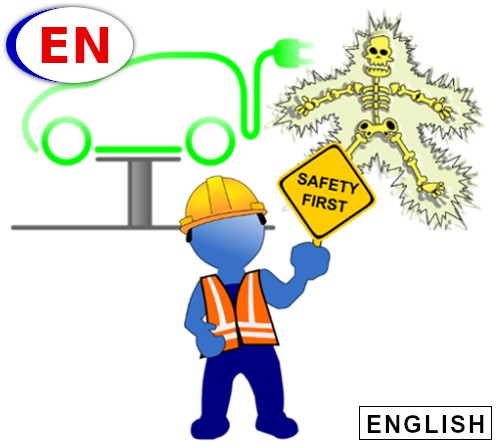 Electrical safety is key when working on EV and HEV. With this training model you learn how to perform your work correctly and safely.
Electrical safety is key when working on EV and HEV. With this training model you learn how to perform your work correctly and safely.
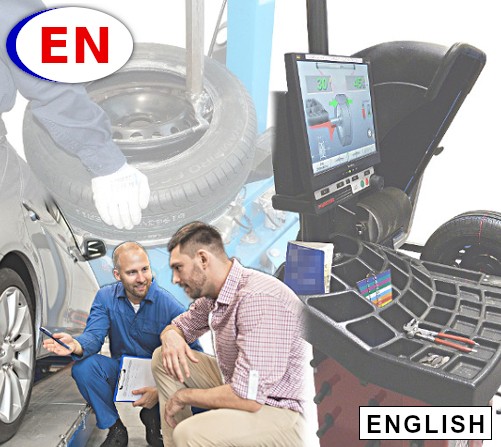 Checking wheel balance is done, and how to make sure your customer is satisfied with the service.
Checking wheel balance is done, and how to make sure your customer is satisfied with the service.
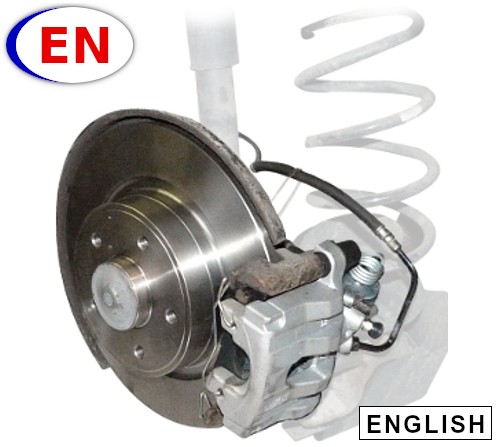 Brake service and repair is probably one of the most common additional jobs that are linked in connection to the interval service.
Brake service and repair is probably one of the most common additional jobs that are linked in connection to the interval service.
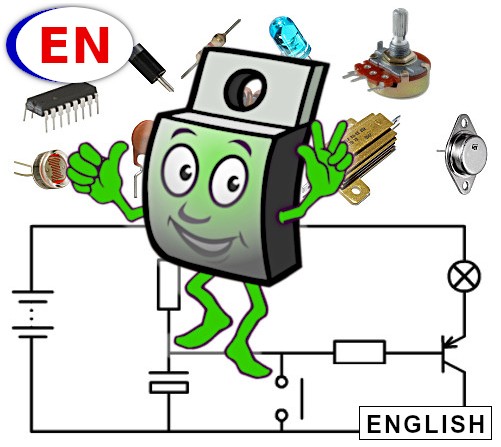 Electronics and electrical components are a central part of electric circuits.
Electronics and electrical components are a central part of electric circuits.
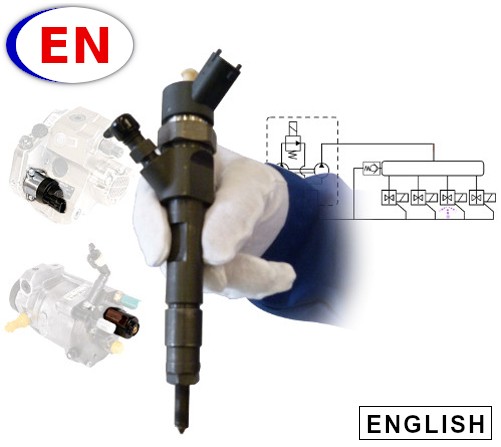 Learn how common rail works with this online training module.
Learn how common rail works with this online training module.
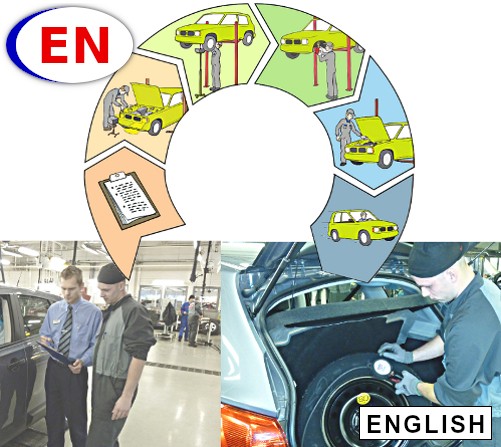 Learn the important steps in performing maintenance services on vehicles, and how to ensure customer satisfaction.
Learn the important steps in performing maintenance services on vehicles, and how to ensure customer satisfaction.
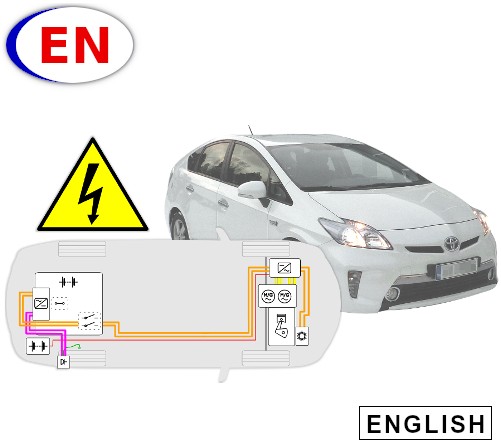 Learn the basics behind the 2014 Toyota Prius PHEV with this online training module.
Learn the basics behind the 2014 Toyota Prius PHEV with this online training module.
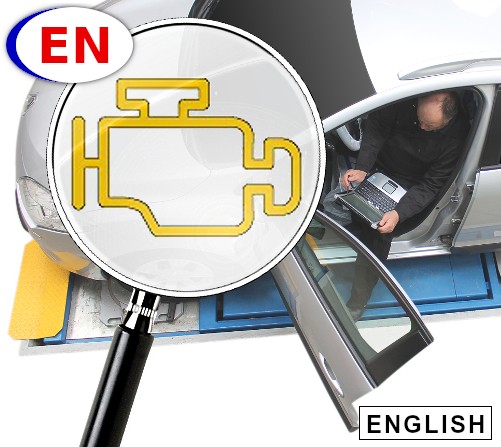 Improve your troubleshooting skills with this automotive diagnostic training.
Improve your troubleshooting skills with this automotive diagnostic training.